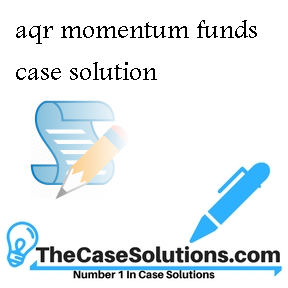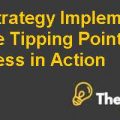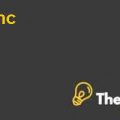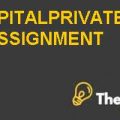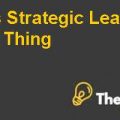Introduction:
AQR is a hedge fund that is based in Greenwich, Connecticut. It is considering offering a line of products to retail investors that is wholly new. The line is named as the ability to invest in the price phenomenon called momentum. A large body of empirical evidences supports momentum across many different classes of assets and many different countries.
Up to this point, the momentum strategy was only used by the hedge funds exclusively. Hence, it was not available to individual investors in the past. However, AQR now is considering offering it to individual investors as well. It is looking into the issues it will face while implementing the “mutual funditizing strategy” on the hedge fund products. It is also considering the challenges it might face with the open-end and regulatory features of the mutual funds and its effects on the already successful strategies in other areas.
AQR also wants to consider the various correlations between many popular investment strategies by using long time-series data available to it, and think about the possible corresponding strategies in its portfolio construction.
Background:
AQR was established in 1998, and it is located in Greenwich. The founders of the firm include Asness, Kabiller, Krail, and Liew, who have all worked together at Goldman Sachs before starting the AQR.
The firm has grown substantially since its start and by 2009 it had over 200 employees and has managed over $19 billion in assets. A large portion of the assets have been invested in hedge fund strategies. In addition to this, the company has created strategic partnerships that help it to form branches with other investment spaces. While the existing hedge-funds of the company have seen to be profitable, it has also witnessed mutual funds as a large pool of capital that has been increasingly growing in needs.
AQR defines the momentum as the phenomenon that stocks, which have performed well in the past,will also perform well in the future, and the stocks that have performed poorly in the past will continue to perform poorly in the future. This idea of relative performance is an important component of momentum, as it describes that the strategy of momentum is implemented regardless of the ups and downs in the market.
The first academic paper about the momentum strategy was published in 1993 by Jagadeesh and Titman. After that many such papers have been published, out of which the most important papers include that of Clifford Asness’s 1994 paper, which shows the robust profitability of the momentum investing strategies. Asness is also amongst the founders of AQR.
The important papers also include the paper of Grinblatt and Moskowitz in 1999, which demonstrates the role of industry affiliation in the performance of momentum. Moskowitz has served at AQR as a consultant. While the explanations about momentum differ, there is a widespread agreement about its pervasiveness and its existence. It has also been found in international equity markets and across various asset classes.
Some of the momentum writers argue that the momentum investors experience outsized average returns because they face undiversifiable risk. They explain the belief by presenting the fact that high momentum stocks have a strong tendency to move together; hence they make the achievement of momentum profits difficult without exposing them to the possibility of a large amount of losses.
Others say that the momentum profits are brought in by cognitive errors and irrationalities in the market. Apart from that, some behavioral theories explain that momentum is a result of overreaction or under reaction to news or announcements by the companies. Hence, many firms use the theory to design investment vehicles in order to generate profits. Hedge funds use momentum in their strategies, and institutional equity funds use it in their portfolios. AQR is also considering the use of momentum in their strategy offered to retail investors...........
This is just a sample partial case solution. Please place the order on the website to order your own originally done case solution.

